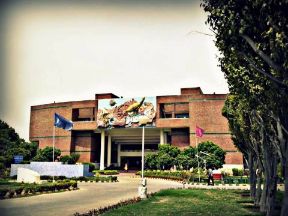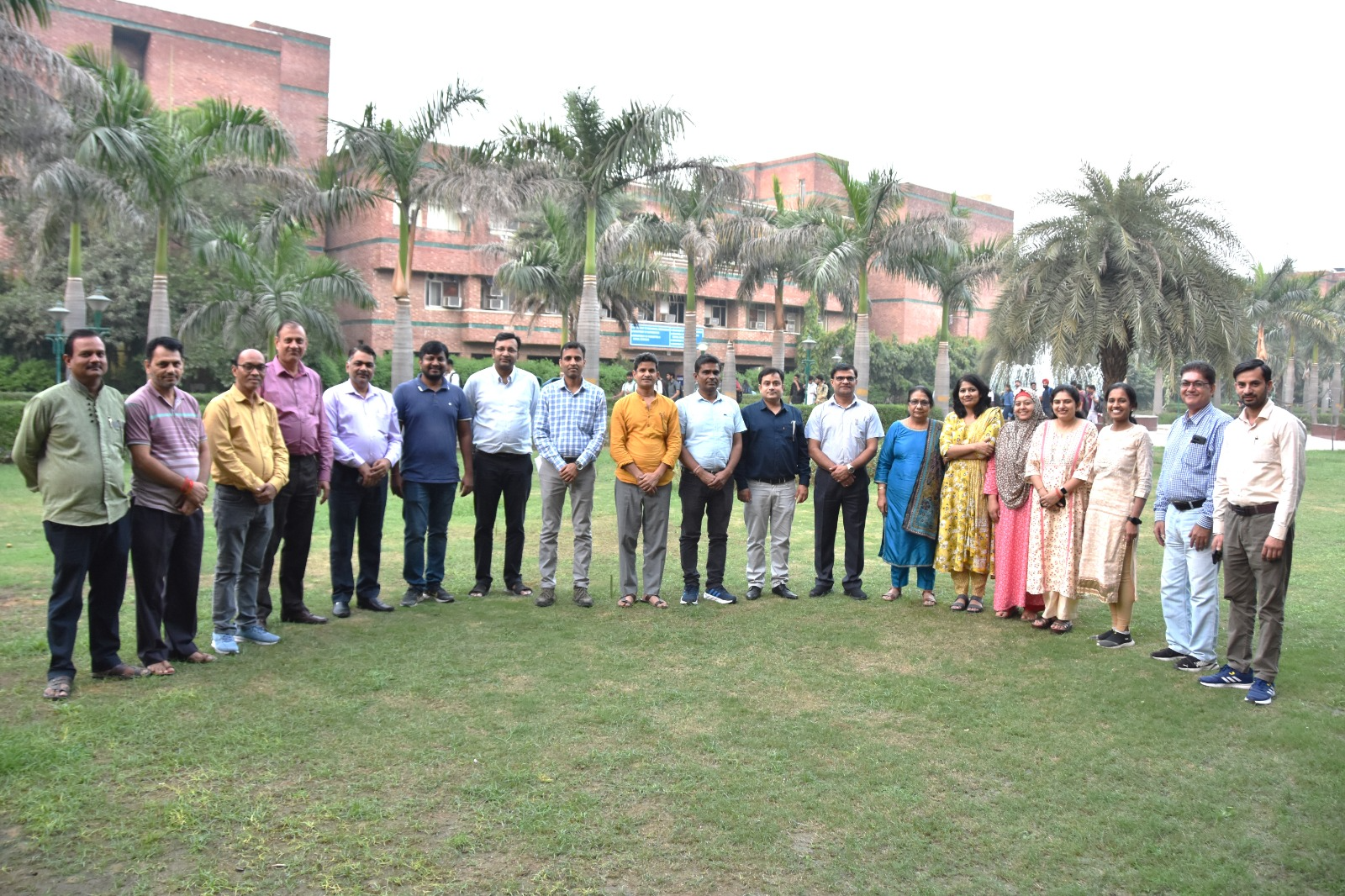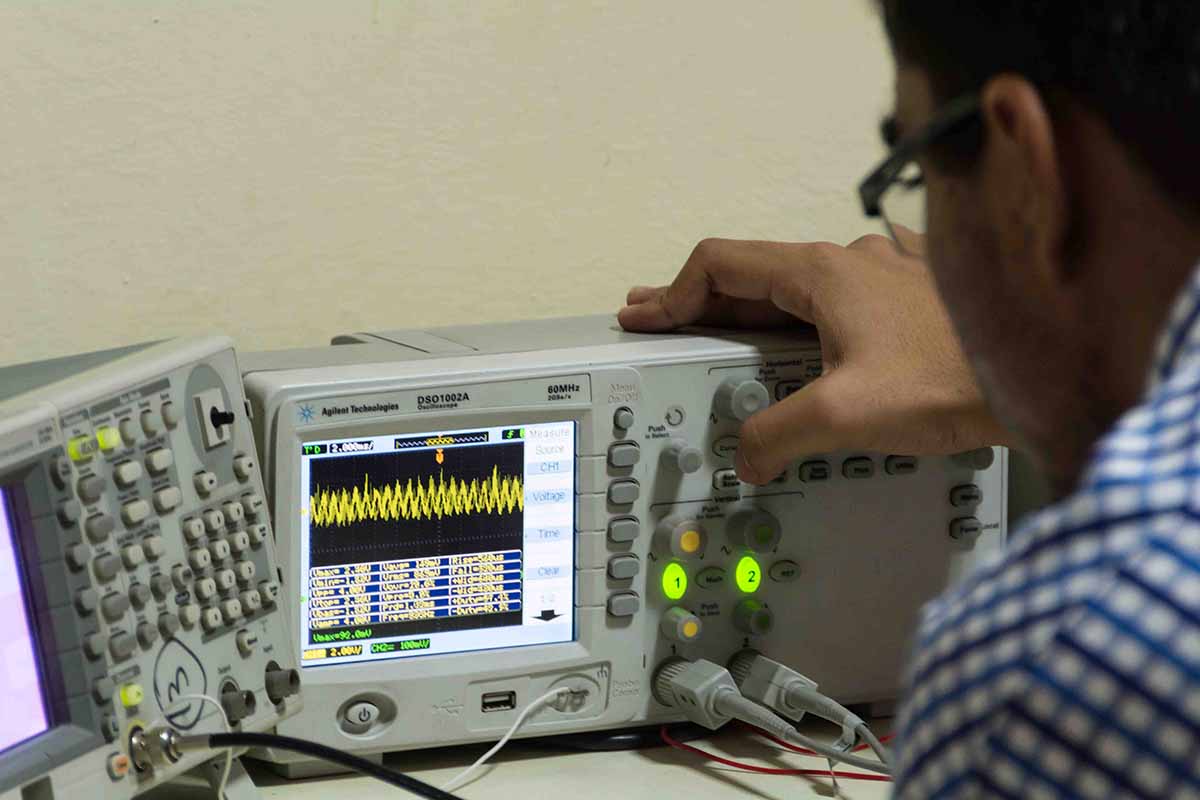Department of Electronics and Communications Engineering
General Information
Vision and Mission of the ECE department
Vision: To develop innovative, creative and ethical electronics and communication engineers for industry and society through excellence in technical education and research.
Mission:
- To provide creative learning environment to the students for excellence in technical education.
- Fostering culture of innovation and research in the field of electronics and communication engineering for the development of the society.
- To imbibe self learning attitude, entrepreneur skills and professional ethics.
- To prepare students to face the challenges related to emerging technologies in the area of electronics and communication engineering.
Programme Educational Objectives (PEOs):
- Provide graduates with a strong foundation in mathematics, science and engineering fundamentals to enable them to devise and deliver efficient solutions to challenging problems in Electronics, Communications and allied disciplines.
- Be receptive to new technologies and attain professional competence through lifelong learning such as advanced degrees, professional registration, publications and other professional activities.
- Practice the ethics of their profession consistent with a sense of social responsibility and develop their engineering design, problem solving skills and aptitude for innovations as they work individually and in multi disciplinary teams.
The ECE curriculum provides a wide perspective of the field of electronics and allows the student to decide his future directions. As can be expected, student often diverge into related fields such as computer engineering. The ECE branch provides the perfect ground and flexibility for student who wish to go into other streams.
From the very beginning, the ECE division has taken the lead in establishing well- equipped and modern Lab facilities as well as initiating Ph.D programs and Research and Development in the Institute. The ECE division has produced several Ph.D's in the areas of its activities. Regular Masters's program in the specified areas of Signal Processing, Digital Systems and VLSI Design and Communication Systems are planned out of which the first one has already started since August 1999.
Students from the ECE branch often decide to pursue post-graduate studies, showing their ability to continue research in diverse areas. This illustrates the success of the institute in providing a solid base for serious research and development work. Our students are often accepted into the best institute in India such as IIT's and IISc. Bangalore. A number of students also continue post graduate study at the masters and Ph.D levels in reputed universities in the US.
Courses Offered
The Department offers 01 Undergraduate (UG) and 03 Postgraduate (PG) and Ph.D programmes. The UG programme was started in 1983, right from the inception of the Institute. The first PG programme on Signal processing in ECE was started in the year 1999. The second PG programme on Embedded Systems and VLSI started in the year 2016. The rapid developments in the field of communication triggered the inception of another PG programme on Communication and Networking in year 1999. The Master of Technology programmes are two-year course-based programmes. Students take about 12 courses from within and outside the department, according to the programme requirements. The courses offered are of high standard, many include advanced topics and topics based on recent research. In addition, the Department also offers high quality research programmes at the doctoral level.
To keep in pace with the current technological advancements, the UG and PG curriculum has been recently modified so that the students get a feel of what exactly is happening outside in the tech-world.
- B.Tech.-Electronics and Communication Engineering: 180 students - Eight Semesters - Choice Based Credit System
- B.Tech.-Electronics and Communication Engineering (Internet of Things): 60 students - Eight Semesters - Choice Based Credit System
- M.Tech. –Signal Processing: 30 students - Four Semesters - Choice Based Credit System
- M.Tech. –Embedded Systems and VLSI :30 students - Four Semesters - Choice Based Credit System
- M.Tech - Communication & Networking :18 students - Four Semesters - Choice Based Credit System
- Doctor of Philosophy (Ph.D.)
Areas of Research
Presently our faculty is undertaking research in following broad areas:
1. Analog Signal Processing, and VLSI
Modern Filter Design, Bipolar and CMOS Analog Integrated Circuits, Advanced Active Network Synthesis, Analog Signal Processing, Current-mode Analog Circuits, Analog VLSI Circuits and Systems, Low voltage low power design techniques, Fractional order analog and digital circuits, Low power high performance digital CMOS circuits, CAD for VLSI Design, Automated design and optimization of analog and mixed-signal integrated circuits, Integrated circuit design using memristors.
2. Wireless and Optical Communications
Optical communication, Optical networks, Free space optical communication, Diversity techniques, Space-time coding, Cooperative communication and free space optics. Power line communication and molecular communication, Wireless communication, wavelets, Multiple-input multiple-output (MIMO) systems, Multi-user based communications, Networking.
3. Signal and Image Processing
Digital signal processing, Filtering theory, Quantum signal processing, Multimedia security, Image and audio compression. Pattern recognition, Wave digital filters, Soft computing Techniques, FPGA-based Implementation of DSP systems, Optimization, DSP Algorithms and applications, Speech, Image processing and computer vision, Modeling and simulation, Artificial intelligence, Machine learning, Artificial neural networks.
4. RF and Microwave Engineering
Antennas, Metamaterial, Antenna arrays, Microwave components, Electromagnetics, Optimization techniques, Antennas & Radio wave propagation, Microwave filter, Antenna designs.
5. Computer Networks
Routing and Survivability of optical networks, Performance of Elastic optical network, Performance of SDM-WDM optical networks, Application of Machine learning in Optical Networks.





